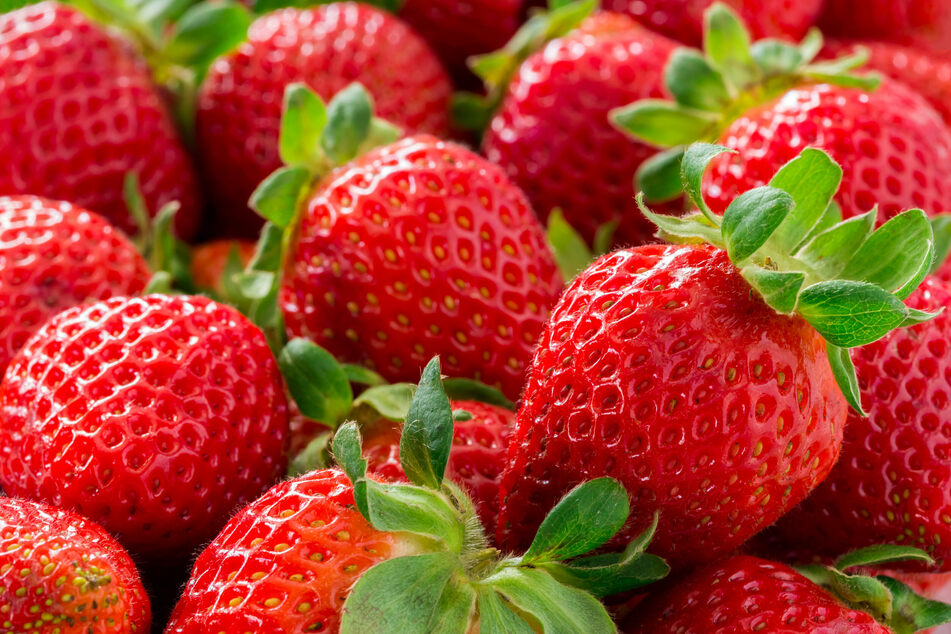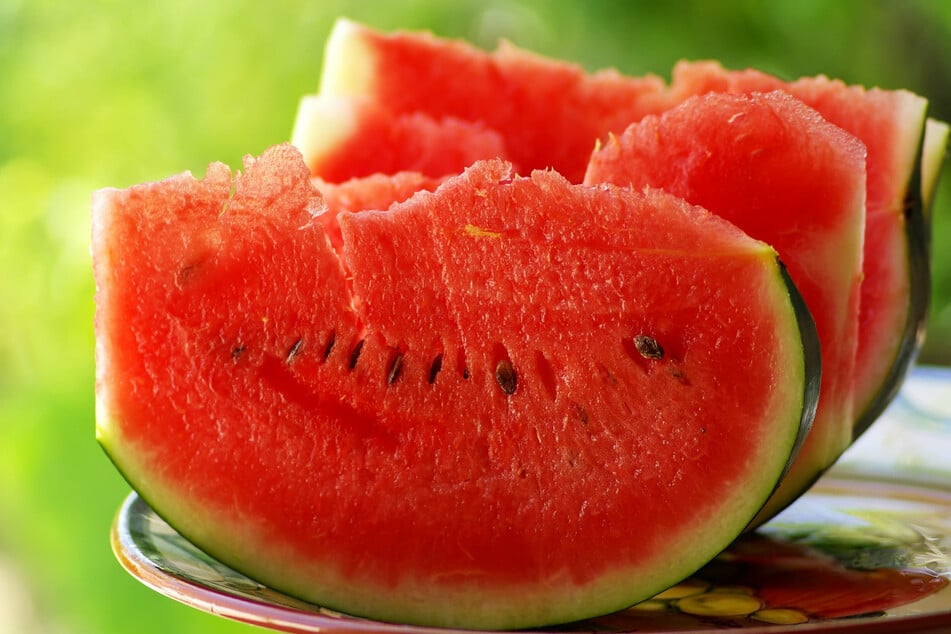Low in calories and sweet: here's how to easily outsmart chocolate cravings!
Yes, snacking is also possible without chocolate – with berries, for example. Or, if you have a green thumb, you might have a garden of treats right in your own backyard!

Let's be honest with ourselves: when we eat chocolate, we don't stop at just one piece. We have another piece, and another piece – and that guilty conscience quickly sets in.
But nutrition experts are sure you can outsmart yourself and offer a healthier alternative.
It's easy to do, especially in the summer – there are plenty of berries on sale, or you can grow some in your own garden. "You satisfy your craving for sweets without eating too much sugar and at the same time you take in lots of valuable nutrients," says nutritionist Matthias Riedl.
Take strawberries, for example: they are packed with vitamins and minerals.
They also contain folic acid, vitamin B1, and vitamin K, as well as minerals such as zinc, copper, and manganese. Another bonus: despite their sweet taste, strawberries are not only low in sugar, but also only pack about 32 calories per three strawberries!
TheHealthy.com says strawberries are good to eat when you have a cold, and can help fight brain aging! People who ate higher amount of strawberries between the ages of 58 to 98 cut their risk of Alzheimer’s disease by 34% according to a 2019 study published in the journal Nutrients.
Mia Syn, RDN, a registered dietitian nutritionist in Charleston, South Carolina, says, "Vitamin C also helps the body absorb iron from plant-based foods."
Cut with fruit

TheHealthy.com says the International Blueberry Organization reported that America has doubled its blueberry production since 2008, with more than 700 million pounds produced in 2019 alone. That means your chances of getting locally-sourced fruit are good!
Aside from being rich in fiber, blueberries are fantastic disease fighters. Registered dietician Whitney Linsenmeyer is a spokesperson for the Academy of Nutrition and Dietetics and assistant professor of nutrition at Saint Louis University in Missouri. She raves about the fruit, saying, "Blueberries contain compounds called anthocyanins, which give them their distinctive blue color. The anthocyanins have been studied for their effects in reducing the risk of cardiovascular disease, cancer, and age-related cognitive decline."
Watermelons are an additional healthy option, and are great at providing quick hydration and have just 50 calories per cup of the fruit.
"Watermelon contains the powerful antioxidant lycopene, which can help men reduce their risk of prostate cancer," says professor of nutrition at Boston University Joan Salgon Blake. "It is also a potassium powerhouse, an important mineral that can help lower high blood pressure."
Cherries are also an ideal snack for in-between meals. They contain minerals such as iron, potassium, calcium, and magnesium, and are also true vitamin bombs. The same goes for peaches.
You can have too much of a good thing though...

Then there are types of fruit that you can and should enjoy, but rather in moderation – because they are high in sugar. Mangoes, grapes, and pears pack a lot of sugar and might be best saved for special occasions.
The risk of consuming excess sugar increases when it comes to fruit juices. Eating the whole fruit is always a better alternative because many juice products contain added sugar, and the potential benefits you would gain from consuming the skin of grapes for fiber, for example, are lost.
If you're focusing primarily on avoiding chocolate, apple slices are a great substitute. The best option of all would be a healthy snack made up of a mix of fruit and vegetables, perhaps with some nuts added in. Radishes, sliced peppers, and cherry tomatoes pair nicely with most fruits.
But there's still good news for chocoholics because swearing off chocolate completely isn't good either. "Chocolate is also food for the soul, it's a blessing to enjoy it – ideally in small quantities," says Susanne Umbach, a nutritionist.
And for those who struggle with portion control, she has another simple but effective tip: when shopping, be careful not to buy too much of it. "What you don't have in the house, you can't eat."
Cover photo: kobeza/123RF
